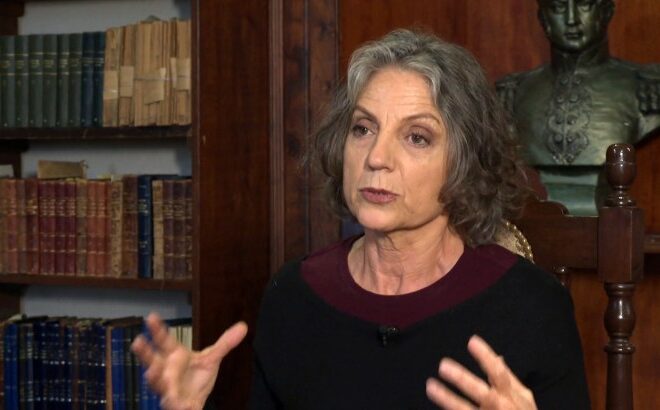Spain

Spain’s Prime Minister Calls for International Sports Ban on Israel
In a significant political statement, Spanish Prime Minister Pedro Sánchez has advocated for the exclusion of Israel from international sporting events. This call comes in the wake of recent protests that disrupted the final stage of the Spanish Vuelta cycling race in Madrid, where demonstrators voiced their opposition to Israel’s involvement in the competition. Sánchez’s remarks have ignited a broader discussion about the ethics of sports participation amid geopolitical conflicts.
Context of the Protests
The protests that prompted Sánchez’s comments occurred during the final stage of the Vuelta, a prestigious cycling event that attracts international attention. On Sunday, demonstrators clashed with police near the race’s finish line, resulting in the race being cut short. The protests were primarily aimed at the participation of the Israeli cycling team, Israel Premier Tech, in the event. According to Spanish authorities, over 100,000 people took part in the demonstrations, which were organized by pro-Palestinian activists.
Two individuals were arrested during the protests, and 22 people sustained injuries, although none were reported to be serious. The Spanish government had previously expressed sympathy for the protesters, suggesting that the Israeli team should have withdrawn from the race, which had effectively turned into a diplomatic flashpoint.
Sánchez’s Statements
During a meeting with members of his Socialist Party, Sánchez drew parallels between Israel’s actions in Gaza and Russia’s military campaign in Ukraine. He questioned the inconsistency in international responses, asking, “Why expel Russia after the invasion of Ukraine and not expel Israel after the invasion of Gaza?” He argued that until the violence ceases, both Russia and Israel should be barred from international competitions.
Sánchez’s comments reflect a growing sentiment among some political leaders and activists that sports should not be used as a platform for nations that are perceived to be violating human rights. His remarks have sparked debate about the role of sports organizations in addressing international conflicts.
Reaction to Sánchez’s Remarks
The Israeli government responded swiftly to Sánchez’s statements. Israeli Foreign Minister Gideon Saar criticized the Prime Minister, accusing him of inciting the protests against the Israeli team. Madrid’s mayor, José Luis Martínez-Almeida, also condemned Sánchez, labeling the events of the day as a “sad day for the Spanish capital.”
The Vuelta’s organizers faced challenges as they navigated the protests. Danish Prime Minister Mette Frederiksen expressed her disapproval of the protests, stating that they “spoiled” the race and commended the athletes who participated without disruption.
The Vuelta’s Disruption
The Spanish Vuelta, known for its challenging routes and competitive spirit, was significantly affected by the protests. The final stage was abruptly halted, and there was no stage winner announced. The podium ceremony was also canceled due to safety concerns. Race director Javier Guillén explained that the decision to allow the Israeli team to remain in the race was guided by regulations set forth by the International Cycling Union (UCI), which governs cycling events globally.
Guillén emphasized that the primary goal was to ensure the safety of all participants and spectators. He noted that the protests had disrupted several stages of the Vuelta, leading to discussions about the implications for future sporting events involving Israeli participants.
Future Implications for Sports Events
The unrest surrounding the Vuelta raises questions about how international sports organizations will respond to similar situations in the future. Guillen acknowledged that the protests would likely prompt further discussions within the cycling community and among international sports bodies regarding the participation of teams from nations involved in conflicts.
Looking ahead, the Tour de France is scheduled to begin next year with a stage in Barcelona. Guillen expressed hope that the situation would be resolved before the event, emphasizing the importance of a successful and peaceful race.
Conclusion
Sánchez’s call for a sports ban on Israel highlights the intersection of politics and athletics in an increasingly polarized world. As protests continue to shape public discourse, the future of international sports participation may hinge on how organizations choose to navigate the complex landscape of global conflicts.
Key Facts
– Spanish Prime Minister Pedro Sánchez called for Israel to be banned from international sports.
– Protests disrupted the final stage of the Spanish Vuelta cycling race, opposing the Israeli team’s participation.
– Over 100,000 people participated in the protests, leading to two arrests and 22 injuries.
– Sánchez compared Israel’s actions in Gaza to Russia’s invasion of Ukraine, advocating for a similar response.
– The Vuelta’s final stage was cut short, and the podium ceremony was canceled due to security concerns.
– The race director noted that the protests would likely impact future events involving Israeli teams.
Source: www.espn.com

